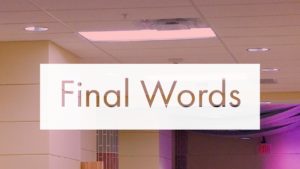Congrats Gretchel Gealogo: the Newest Graduate of the Nursing Science Ph.D. program!

Congratulations Gretchel Gealogo, the newest graduate from the Nursing Science Ph.D. program, for successfully defending your dissertation “A light in the dark”: development of a conceptual model for person-engaged dementia care.”
Why did you pick UT Health Science Center and your program?
I first came to UTHSCSA in fall 2007 as a student in the School of Nursing’s second Accelerated Bachelor of Science in Nursing cohort, and never really ended my formal nursing education. During my last semester of the Bachelor of Science in Nursing program—spring 2009—I was recruited by a faculty mentor to continue on to the Nursing Science Ph.D. program that fall.
At the time, we were required to obtain an Master of Science in Nursing (MSN) en route to the Ph.D., so I began my MSN program in Administration in Community and Health Systems in fall 2009. I completed that program in May 2011 and began my Ph.D. coursework that same month.
I really enjoyed my learning experience in San Antonio during my undergraduate program, from so many incredible mentors at the school, in the nursing workforce, and in the patient population.
It made sense to continue my journey there. I’ve commuted to and from the Austin area for both work and school during most of my time asa UTHSCSA student, and don’t regret a single mile I’ve driven.
Why are you passionate about your research topic? How did you first become interested in it?
I’d only been a nurse for about six months. I was working a night shift on a medical-surgical unit and was assigned a patient with a fractured arm who was also recently diagnosed with Alzheimer’s disease. I discovered she’d been agitated all day because her pain had been undertreated. She couldn’t effectively verbalize her needs, and staff couldn’t effectively interpret her behavior as her way of conveying her pain.
Thankfully, with trial and error, this patient and I were able to work together on a plan of care, and we made it
through the night safely. Before I left, she said to me, with tears in her eyes, “You know, I know I’m losing it.” And it shook me.
That encounter changed the way I thought of and took care of my patients, especially those
with dementia. It made me realize that if we clinicians weren’t doing a good job of assessing and addressing pain in patients who we perceived as less effective at communicating their needs, what else were we missing?
Please provide a few sentences summarizing your
research.
I was interested in community-based and alternative models for dementia care, and discovered that in the U.S., adult day programs were the most popular care delivery option used by caregivers of persons with dementia who still lived at home.
After canvassing several programs, I found an innovative program that had a great reputation, longevity, and successful outcomes. It served as my dissertation study site, and I relocated to and lived in that community for four months.
The data I collected helped me refine a proposed conceptual model for what I call person-engaged dementia care, which is based on the premise that persons with dementia are health care consumers who contribute to their health care and organizational goals.
What did you learn during your graduate student
career?
That research has the power to transform not only the “researched” but also the researcher. I met and worked with so many incredible people during my pilot and dissertation study—people who, quite frankly, became my heroes.
Using my dissertation to build a program of science in care systems theory absolutely changed and will continue to change the way I live in my world as a clinician, researcher, teacher, neighbor, caregiver, daughter, and person.
What’s next?
I work for Seton Healthcare in Austin, where I split my work week between clinical practice at the bedside
and helping refine or develop system-wide nursing educational initiatives. I’m developing parts of my dissertation into mass-market and research methods book manuscripts, and submitting abstracts on my dissertation work for upcoming scientific meetings. This fall, I’ll be launching my own business—a consulting firm that will provide nursing workforce coaching in person-engaged care for health care teams and organizations that serve the elderly.
Any advice for your fellow graduate students?
Think outside the box whenever and however you can. If we’re not using our research to transform our world, then what’s the point?
To read an article about how the “Nursing Science Ph.D. Helps Fill Demand for Nurses With Doctorate Degrees,” please click here.
